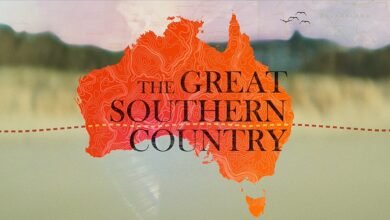PEZ Bookshelf: Cycling Legends 02-”TI-Raleigh: Cycling’s First Superteam”

Over the decades there have been so much evolution in bike racing, from nutrition to training to equipment to tactics. Once upon a time, a professional team would have been essentially built around a single rider (think Fausto Coppi and Bianchi, Raymond Poulidor and Mercian, or Merckx and, well, any of his teams) who competed pretty much throughout the season. By 1993 the emergence of Mapei as a fighting force saw that team field a whole range of riders who could win a given race. Perhaps today’s example would UAE Team Emirates where Tadej Pogačar may be the biggest star but he is not alone his wins: so far in 2025 UAE’s 13 victories to date have been won by seven riders.

But before UAE Team Emirates and even before Mapei there was another team that was staffed with the best of the best. From its inception in 1972 to its demise a decade later, TI-Raleigh won more than 900 races on the road and on the track. A recent book by British author Chris Sidwells chronicles the fortunes of this Anglo-Dutch enterprise, described as the first true “superteam.” It is remarkable to look at the list of major wins on the road as well as the number of national champions—on the road, as time trial and track winners—and World Champions that were on the team’s roster.

The Raleigh Cycling Company was founded in 1885 in Nottingham, England and by 1913 had become the biggest bicycle manufacturer in the world. (We reviewed a comprehensive book about the company here pezcyclingnews.com). In 1960 the firm was acquired by Tube Investments (later renamed TI Group plc in 1982), an engineering holding company that began in the manufacture of seamless steel tubing and, among other holdings, owned Reynolds Tubing as well. While Raleigh had in its history sponsored some racers at a modest level (including British track legend Reg Harris), the limited state of bike racing in Britain made it of little import for promotion as the company already had half of the market for bicycles). However, the 1973 entry of the United Kingdom into the European Common Market (ah—those were the days!) was seen as opening up new sales vistas so Raleigh management, under the prodding of one David Duffield, then a company marketing manager but later noted as a bike race commentator, decided that it would go into racing on the Continent with the ultimate goal of the Tour de France.

As the book relates, Carlton was another bicycle brand controlled by Raleigh but with an extensive racing background, so it was decided to use the TI-Carlton team to test the waters in Europe and the team, with mainly British riders, went there in 1972. With somewhat encouraging results the team name was changed to TI-Raleigh in 1973 and while the team was run on the proverbial shoestring some more success followed, enough to convince Raleigh to get serious in terms of money and management. Thus in 1974 Peter Post, a former Dutch racer who had had considerable success in track racing as well as a win at Paris-Roubaix in 1964, was brought on board as manager. Back fifty years ago this job seemed to entail from dealing with sponsors, team administration, and the role of directeur-sportif as it seems Post was always in the team car chasing his riders during a race and shouting at them.

Nicknamed “De Keizer” (“The Emperor”) in his heydey, Post was “a self-possessed boy who turned into a tough and talented bike racer. TI-Raleigh was his, Post ruled it with an iron fist. No need for a velvet glove, pretence wasn’t his style. He was hard and uncompromising. He gave orders and expected them to be obeyed. His approach wouldn’t work with a team today, but it worked with TI-Raleigh.” From the book it can be seen that Post was not conflict-adverse. His first order of business was to ease out most of the British riders and replace them with a squad of primarily Dutch and Belgian pros.

The team bikes were built by Dutch framebuilder and master mechanic Jan Legrand, albeit at Raleigh’s Specialist Bicycle Development Unit (SBDU) in Ilkeston, outside of Nottingham. There a dozen craftsmen under the supervision of Carlton boss Gerald O’Donovan prepared bikes both for the team and well-heeled private customers. SBDU closed in 1986 but the bicycles remain sought-after by collectors and have a chapter to themselves in “TI-Raleigh.”

The book proceeds, in generally chronological order, from the early days as the team begins to find itself working through Post’s three year plan to reach the Tour de France, which as indeed accomplished in 1976. That year the team took four stages at the Tour, as well as Hennie Kuiper’s Tour de Suisse overall earlier in the season. The team was particularly strong in team time trials, a specialty that was to become very evident from 1978 onwards.

There are chapters focused on the individual riders who achieved great success with the team. Probably foremost of these was Jan Raas, a Classics specialist who celebrated 115 career wins, including twice Tour of Flanders and Paris-Roubaix with TI-Raleigh. His story is interesting as it seems he was as strong-willed as Post, leaving the team after 1976 after two years as he felt he was not being given the leadership he deserved, riding for another team in 1977 so successfully to TI-Raleigh’s cost that Post brought him back in 1977. Eventually the relationship was so fraught that Raas left to start his own team in 1984, taking some of the Raleigh riders with him, while Post started the Panasonic team that year as Raleigh sponsorship of TI-Raleigh ended.

Other riders that receive attention in the book include the German “Wunderkind” Dietrich “Didi” Thurau, 1978 World Champion Gerrie Knetemann, two-time Alpe d’Huez stage winner Peter Winnen, team reliable Henk Lubberding and, of course, Joop Zoetemelk, who led the team to victory at the 1980 Tour de France, the edition where the TI-Raleigh team won 11 stages. The internal team dynamics are covered in detail and were not always very straightforward, not unexpected in a collection of ambitious and highly-talented competitors.


1980 was probably the high point of the team as it began to slowly break apart under Post’s relentless demands. Times changed and everyone moved on in the world of cycling. TI sold Raleigh, which only lives on as a brand name today and has no production in the UK, in 1987 and itself disappeared in a merger in 2000. But the team, with its distinctive red-and-black bicycles designed to look great whether photographed in black and white or colour, has not been forgotten as there is a TI-Raleigh Vintage Cycling Club and there have been reunions of riders as well. But nowhere else has the entire story of this interesting and important team been told as well as in this edition in the Cycling Legends series.

Cycling Legends 02 “TI-Raleigh: Cycling’s First Superteam”
by Chris Sidwells
150 pp., profusely illustrated, softcover
Cycling Legends, UK, 2022
ISBN 978-1-3999-3133-5
Price: GBP 20 (There is a discount available when buying more books in the “Cycling Legends” series)
- The book is available directly from the publisher. For further information and international pricing: cyclinglegends.co.uk.
# Photos courtesy of ‘Cycling Legends’.
Like PEZ? Why not subscribe to our weekly newsletter to receive updates and reminders on what’s cool in road cycling?





